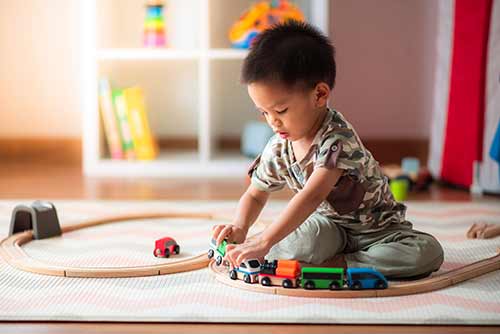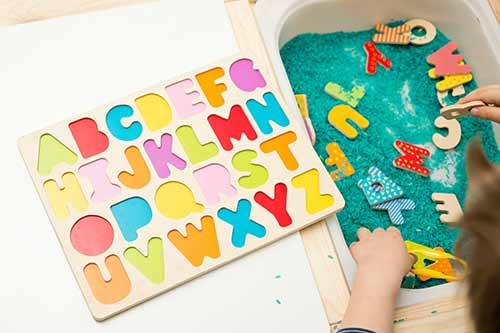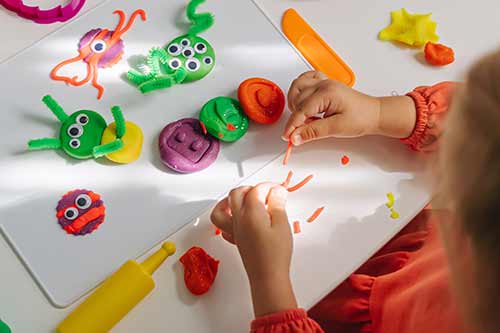Playtime is more than just colorful toys scattered across your living room! In fact, there are many academic and socio-emotional benefits that come from children’s playtime.
Parents can unlock children’s full potential through play-based literacy instruction! By embracing the joyful nature of play and recognizing the importance of literacy and socio-emotional learning, you create an environment where learning is an exciting adventure.
Play, Literacy, and Socio-Emotional Learning
Literacy is like a key that unlocks a world of knowledge and success for our kids. But here’s the best part—it’s not just about reading words on a page. Literacy includes comprehension, vocabulary, and critical thinking skills. And guess what? Play-based learning is the secret ingredient to making it all click!
When we integrate play into literacy, we give our kids the chance to grow emotionally and socially (while also becoming reading superheroes!). Did you know that play is the natural language of children? It’s how they explore, experiment, and understand the world around them.
Play-based learning takes kids’ innate curiosity and enthusiasm and transforms it into an engaging experience that boosts language development, critical thinking, and problem-solving skills. It’s like a magical journey of learning and fun!

4 Play-Based Literacy Activities
1. Alphabet Treasure Hunt
Create a thrilling alphabet treasure hunt by hiding objects or cards representing different letters around your home. Give your child a list of letters to find or clues related to each letter’s sound or a word that starts with that letter.
Let the adventure begin!
2. Sensory Letter Play
Engage your child’s senses by exploring the alphabet through sensory letter play. Fill a tray or container with sand, rice, or any sensory material. Bury alphabet magnets or foam letters in it and encourage your child to dig them out. Together, discover each letter, name it, make its sound, or think of words that start with it.
Enjoy a hands-on exploration that enhances their tactile skills!

3. Alphabet Obstacle Course
Turn learning the alphabet into an exciting physical adventure by creating an ABC obstacle course at home. Use colorful tape or chalk to form the letters of the alphabet on the floor, and let each letter represent a different station or activity.
For example, when your child reaches the letter “A,” they can act like an alligator, and at the letter “B,” they can pretend to be a bird.
Combine movement and letter recognition!
4. Letter Collage
Spark your child’s creativity and reinforce letter recognition by creating a letter collage together. Provide magazines, newspapers, or colored paper and ask your child to search for pictures or words that start with a specific letter. Cut them out and help your child glue them onto a larger sheet of paper in the shape of the corresponding letter.
Enhance their fine motor skills and vocabulary!
Embracing the Joy of Play
Through play, your child becomes a confident reader, an effective communicator, and an empathetic individual. So, let’s harness the magic of play and create a generation of lifelong learners who excel in academics and thrive emotionally and socially!
Remember, play is the secret ingredient that makes learning fun and effective. So, let the play begin, and watch your child soar to new heights of literacy and socio-emotional growth!

The Lingokids app provides a platform that harnesses the power of play, helping children thrive in learning a new language. Lingokids’ interactive learning universe immerses your child in a modern curriculum in English with an array of experiences that deliver learning through play. Most importantly, the app teaches literacy, along with other academic and life skills, through interactive games, quizzes, puzzles, digital books, videos, and songs—so engaging that kids don’t even realize they’re learning!
When children interact with Lingokids, they’re seamlessly blending play and learning in a way that is delightful and fun! Discover more activities, parenting support, and educational tools on the Lingokids blog!
References:
Morin, A. (2021) Play-based activities that build reading readiness, Edutopia. Available at: https://www.edutopia.org/article/play-based-activities-build-reading-readiness/.